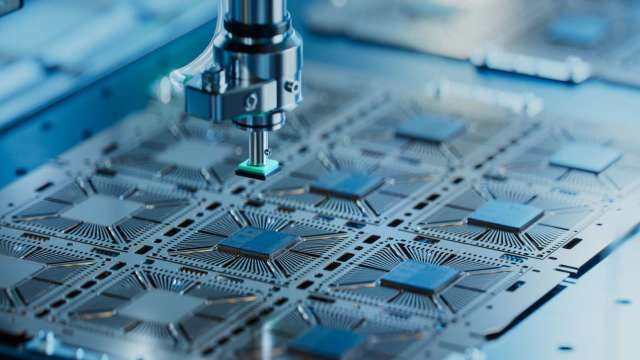Technology Industry Updates: New Developments in Semiconductors, AI, and Supply Chain Layout
1. Intel's 18A Process Node Approaching Mass Production
On April 30, 2025, Intel announced at its Intel Foundry Services Forum that its 18A process node has entered the risk production phase and is expected to achieve formal mass production within 2025. Intel CEO Dr. Lisa Spelman stated that the ramp-up of Intel 18A mass production is anticipated to begin in the second half of 2025, with the first product based on this process, codenamed Panther Lake, scheduled for release by the end of 2025. Additionally, Intel's Fab 52 facility in Arizona has successfully completed the tape-out of Intel 18A, marking the successful trial production of the first batch of wafers. The early trial wafers of Intel 18A-P have also begun production, with this version set to offer superior performance for foundry customers.
2. Apple Restructures Global Affairs and Music Departments
Apple is undergoing a management reshuffle in its Global Affairs and Music departments. The reorganization of the Global Affairs department involves adjustments to the management of government teams in Europe, India, China, and other regions in Asia. Meanwhile, Apple Music will introduce a new leadership structure, with two co-heads reporting to Senior Vice President Oliver Schusser. This restructuring aims to optimize management efficiency in response to the increasingly complex global market environment.
3. Inventec Plans to Establish a Manufacturing Base in Texas, USA
Taiwan-based electronics manufacturing services giant Inventec is planning to set up a product manufacturing base in Texas, USA. The company stated that this move is aimed at addressing global strategy deployment, stabilizing customer relationships, meeting customer shipping location requirements, and mitigating the impact of fluctuations in U.S. tariff policies. Inventec has authorized its U.S. subsidiary to seek suitable production facilities and improve related infrastructure within an investment cap of up to $85 million (approximately RMB 620 million). This move to establish a factory in the U.S. marks the implementation of its strategy to further diversify geopolitical risks.
4. NVIDIA Denies Rumors of Business Split in China
In response to rumors circulating on overseas social media that "NVIDIA plans to operate as an independent company in China and will achieve business separation through joint ventures with domestic Chinese companies," NVIDIA's official response clearly stated that these rumors are entirely baseless and without any foundation. NVIDIA emphasized that it is irresponsible to present unfounded claims and speculations as facts. Currently, NVIDIA is addressing U.S. export restrictions by launching China-specific AI chips (such as the H20), but its business in China still faces challenges from local competitors like Huawei Ascend.
5. 30% of Microsoft's Code is AI-Generated
Microsoft CEO Satya Nadella revealed that currently 20% to 30% of Microsoft's codebase is generated by artificial intelligence, and this proportion continues to grow. Microsoft has leveraged tools such as GitHub Copilot to automate the processes of code writing, testing, and optimization, resulting in a 40% increase in development efficiency. Nadella emphasized that AI not only shortens development cycles but also reduces labor costs, and in the future, it will drive deeper integration of AI into software engineering. This practice may serve as a benchmark for global enterprises to empower productivity with AI.
Summary
From the semiconductor technology race and the deepening application of AI to the diversification of supply chains, the global technology industry is undergoing structural changes. This week, strategic adjustments and technological investments by leading companies will not only reshape the industry landscape but also provide new paradigms for addressing geopolitical and market competition. Over the next two years, the 18A process, the industrialization of AI, and regionalized manufacturing are likely to become key indicators of industry trends.

Conevo IC Chips Providing
As a trusted distributor, Conevo offers a wide range of integrated circuits at competitive prices to meet diverse electronics industry needs. Whether for advanced SoC designs or specific project components, Conevo delivers comprehensive solutions. Contact Conevo for all your IC requirements. Here are some popular Texas Instruments ' IC models recently:
● The ADS1115IDGSR is a high-precision, 16-bit, I2C-compatible analog-to-digital converter (ADC) designed for low-power applications, featuring a programmable gain amplifier (PGA) and a built-in voltage reference, making it ideal for sensor interfacing and data acquisition systems.
● The TPS5450DDAR is a high-efficiency, synchronous step-down DC-to-DC converter designed to provide stable power regulation with low dropout voltage and high current output, making it suitable for a wide range of applications requiring compact and reliable power solutions.
● The TMS320F28034PNT is a high-performance 32-bit floating-point digital signal controller (DSC) featuring a 150 MHz processor, integrated peripherals, and advanced control capabilities, making it ideal for applications in motor control, power conversion, and embedded systems.
Website: www.conevoelec.com
Email: info@conevoelec.com








